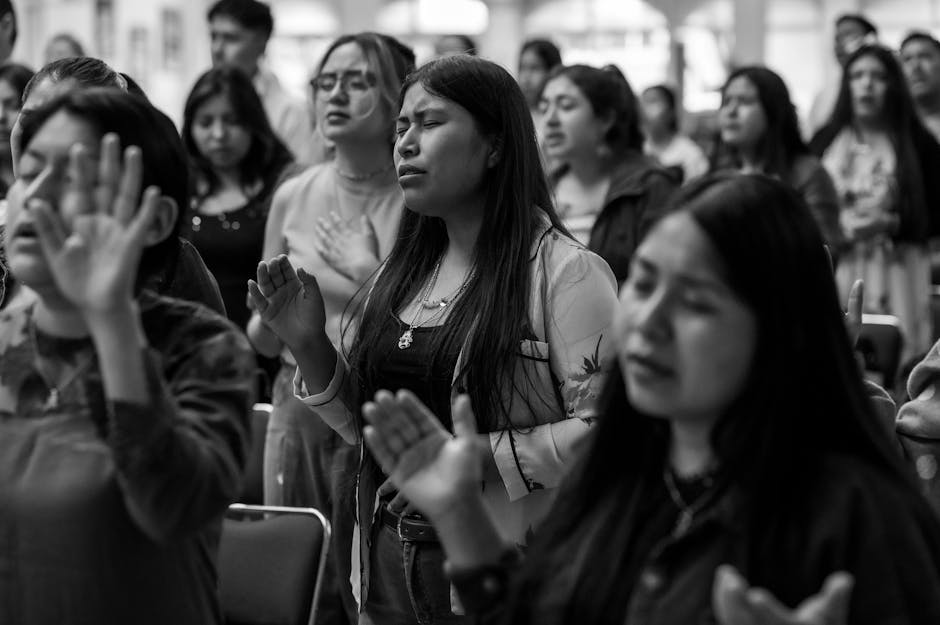A profound human need, the desire for belonging, transcends geographical boundaries and societal structures. Within the realm of faith and spirituality, this innate longing takes on particular significance. A deep sense of belonging within a faith community is not simply a byproduct of shared beliefs; rather, it’s a complex tapestry woven from a variety of experiences and interactions. Understanding the contributing factors is crucial for fostering vibrant and supportive spiritual communities.
A key component is shared identity. This sense of shared identity isn’t merely about agreeing on theological doctrines. Instead, it encompasses a broader spectrum of shared values, experiences, and perspectives. A shared history, particularly within groups with a strong tradition, provides a sense of continuity and ancestry. This lineage, whether perceived as divinely ordained or historically evolved, can anchor individuals to a collective story and foster a profound sense of connectedness. Similar cultural norms and practices, such as communal prayer, rituals, or celebrations, further solidify this shared identity, providing a framework for understanding and relating to one another. Moreover, a shared understanding of the world, informed by the faith’s particular narrative, fosters a sense of unity and purpose.
Beyond shared identity, active participation plays a significant role in fostering a sense of belonging. Engaging in rituals, attending services, or actively participating in community events creates a palpable connection with the faith and with fellow adherents. Regular attendance, for example, allows individuals to build relationships with others, participate in supportive interactions, and experience the communal aspect of the faith in action. This active engagement reinforces a feeling of belonging by offering opportunities for mutual support and shared experience.
This participation, however, must be approached with nuance and sensitivity. A community must prioritize inclusivity and foster an environment where all members feel valued and respected. Individuals from diverse backgrounds, with differing levels of experience and understanding, contribute to the richness of the community. An environment that actively welcomes newcomers, fosters respectful dialogue, and acknowledges diverse perspectives fosters a deep sense of belonging for everyone.
Furthermore, a strong sense of community is integral. This encompasses not only the structured activities of the faith, but also the informal interactions that bind people together. A sense of mutual support is crucial; individuals need to feel that they are part of a supportive network that extends beyond the scope of shared beliefs. In times of struggle or need, this sense of community can be a vital source of strength and encouragement. People are more likely to feel a sense of belonging when they know others are there to offer assistance, share their burdens, and celebrate their joys.
The quality of leadership also profoundly shapes the sense of belonging within a faith. Leadership that prioritizes compassion, empathy, and understanding fosters a welcoming atmosphere. Such leaders build bridges between individuals and cultivate trust, while promoting a spirit of collaboration that allows members to participate meaningfully. Conversely, leadership styles that prioritize control or exclusivity can create alienation and a sense of exclusion.
Finally, internal factors play a critical part. Personal experiences within the faith, including profound moments of connection with a higher power or a supportive experience within the community, are often transformative. These experiences can lead to a deeper understanding of the faith’s message and foster a more profound sense of belonging. The meaning and significance that individuals find within their faith’s teachings, practices, and community become intrinsically linked to their personal journeys and values.
Individual interpretation of faith can also influence the level of belonging. Some individuals experience a sense of belonging within a rigid framework of beliefs, while others find it within a more flexible and nuanced approach. The crucial factor is the alignment between the individual’s interpretation and the community’s practices. When this alignment is achieved, the individual feels comfortable and accepted. Conversely, dissonance between these interpretations may lead to feelings of alienation or exclusion.
Exploring these various components shared identity, active participation, community spirit, leadership, and personal experiences reveals the multifaceted nature of belonging within faith. It’s not simply a matter of adhering to doctrines or participating in rituals; it’s about the interconnectedness of people, their shared values, and their collective experiences. Cultivating this sense of belonging is not merely about satisfying a desire; it’s about fostering a vibrant, supportive, and meaningful spiritual life for all. It is a journey of ongoing growth, dialogue, and connection, shaping both the individual and the collective journey of faith.
